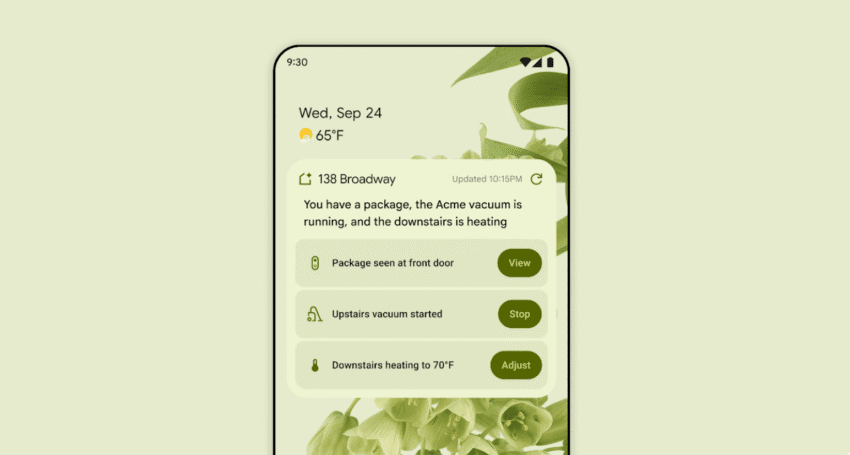
first look at the google home app A significant redesign of the Google Home app is on the horizon, integrating advanced features powered by the Gemini AI technology.
first look at the google home app
Overview of the Google Home App Redesign
Google is set to enhance its Google Home app, following the announcement of Gemini’s integration into its smart home platform. The upcoming version, v3.41.50.3, has been scrutinized by Android Authority, revealing a substantial redesign aimed at improving user experience while placing Gemini’s capabilities at the forefront.
While the overall user interface (UI) may not appear dramatically different at first glance, several usability tweaks are designed to streamline navigation and enhance functionality. The redesign aims to make the app more intuitive, allowing users to manage their smart home devices more efficiently.
Introduction of the “Ask Home” Feature
One of the most notable additions to the app is the “Ask Home” feature. This functionality allows users to control their devices by either typing or speaking commands. The feature is accessible through a new search bar located at the top of the app, which opens a dedicated “Ask Home” conversation screen. This enhancement is particularly significant as it aligns with Google’s broader strategy of enabling natural language processing across its platforms.
According to the screenshots released by Android Authority and further detailed in a YouTube video, users will be able to search their video and home history for detailed descriptions of past events. This capability not only enhances the user experience but also provides a more comprehensive understanding of how devices have interacted over time. Such a feature could be invaluable for users looking to troubleshoot issues or simply review their smart home activity.
Gemini’s Role in Smart Home Management
Google’s Gemini technology is designed to facilitate natural language interactions with smart home devices. The integration of Gemini into the Google Home app is a logical extension of its capabilities, allowing users to communicate with their devices in a more conversational manner. This shift towards natural language processing reflects a growing trend in the tech industry, where voice commands and conversational interfaces are becoming increasingly prevalent.
With Gemini, users can expect a more seamless interaction with their smart home devices. For instance, instead of needing to remember specific commands or phrases, users can simply express their needs in everyday language. This could significantly lower the barrier to entry for new users who may be intimidated by complex command structures.
Enhanced Usability and Navigation
In addition to the “Ask Home” feature, the redesign includes several other usability improvements. For example, the Favorites tab has been renamed to “Home,” which may help clarify its purpose for users. Furthermore, the Devices and Settings tab has been removed from the bottom navigation bar, leaving only three icons for easier access. Devices will now be accessible via a grid icon located in the Home tab, streamlining the navigation process.
These changes reflect a broader trend in app design, where simplicity and ease of use are prioritized. By reducing clutter and focusing on essential features, Google aims to create a more user-friendly experience that encourages engagement with the app.
New Features and Functionalities
The redesign also introduces new features that enhance the app’s functionality. Users will now have the option to add outdoor air quality and temperature as a favorite tile, providing quick access to important environmental data. This feature is particularly relevant as more users become conscious of air quality issues and seek to monitor their surroundings.
Additionally, the introduction of new icons for video and temperature on the Home page suggests that Google may be preparing to launch new Nest hardware in the near future. This speculation aligns with the company’s pattern of integrating new devices and features into its ecosystem, further enhancing the capabilities of the Google Home app.
Implications for Users and Stakeholders
The implications of these updates extend beyond just aesthetic changes. For users, the integration of Gemini and the new features could lead to a more intuitive and efficient smart home experience. As smart home technology continues to evolve, the ability to control devices using natural language will likely become a standard expectation among consumers.
For stakeholders, including developers and manufacturers of smart home devices, these updates signal a commitment from Google to enhance its ecosystem. The integration of Gemini may encourage third-party developers to create more compatible devices, knowing that they will be able to leverage the advanced capabilities of the Google Home app.
Future Prospects and Expectations
As Google prepares to roll out this redesigned app, many users are hopeful that it will also bring a host of features that have been trialed in the Public Preview program to a wider audience. This could include additional functionalities that enhance device integration and user interaction.
Moreover, the timing of this redesign is significant, as it coincides with a broader push in the tech industry towards more integrated and user-friendly smart home solutions. As competition in the smart home market intensifies, companies like Google must continually innovate to maintain their edge.
Community Reactions and Feedback
The initial reactions from the tech community have been largely positive, with many praising the focus on usability and the integration of Gemini. Users have expressed excitement about the potential for more natural interactions with their smart home devices, as well as the streamlined navigation that the redesign promises.
However, some users have raised concerns about the learning curve associated with new features. While the goal is to make the app more intuitive, there may still be a period of adjustment for long-time users who are accustomed to the previous layout and functionalities.
Conclusion
The upcoming redesign of the Google Home app represents a significant step forward in the integration of AI technology into everyday life. By incorporating Gemini and enhancing usability, Google aims to create a more intuitive and efficient smart home experience for its users. As the rollout approaches, it will be interesting to see how these changes are received and what further innovations may be on the horizon.
Source: Original report
Was this helpful?
Last Modified: September 19, 2025 at 8:40 pm
0 views















